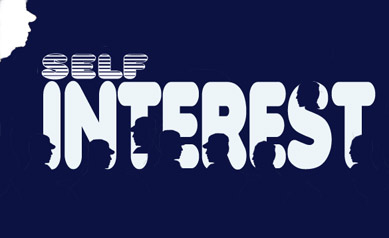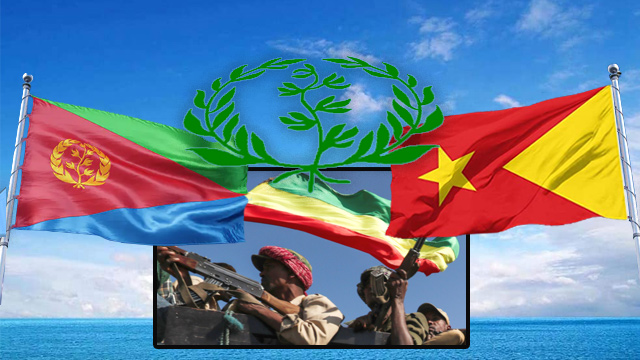A Rudderless And Decrepit EU Courts A Tyrannical Regime
![]()
Following up on its decision last December to engage the Eritrean government, the European Union (EU) recently signed a cooperation agreement involving the provision of €200 million in development assistance to the regime. Scheduled to be disbursed over the next five years, the aid package is intended to stem the flow of Eritrean refugees to Europe purportedly by stimulating economic growth and expanding employment opportunities in the country. The news elicited strong reactions from both sides of Eritrea’s political divide: supporters and opponents of the regime. Given Eritrea’s small population and feeble economy, the size of the aid package cannot be trivialized. Nor can one underestimate the socio-economic dividends that would be generated if the funds were to be faithfully utilized for the intended purpose. And so, there seems to be not much disagreement between the two political groups on these aspects of the aid package.
Where a strong disagreement arises between the parties is in their perceptions of what impact, if any, EU’s financial support will have on Eritrean government’s image/status in the international political arena. The regime and its supporters see the aid package as a major political victory over their opponents and as a step toward breaking out of their international isolation. Within the opposition movement, on the other hand, the EU initiative is regarded as being at odds with prevailing international political opinion on Eritrea. As regards their own political struggle, opposition activists view the event as nothing more than a mere setback – even that, only insofar as international advocacy efforts fell short of thwarting the EU decision.
Beyond that, the Union’s move to engage the regime can hardly render the latter any less illegitimate or inhumane than it really is. A fight continues to be waged to have criminality level and accountability established for the regime’s documented human rights violations. That struggle is firmly grounded in recent UN indictments of the regime and in the international political consensus that is growing around them. As such, it will not be deterred by an aberrant EU decision premised neither on uniformity of policy nor on unanimity of purpose of its membership.
Current political analyses and expert opinions consistently portray an EU that is in crisis and inevitably heading towards disintegration. A discussion of the institutional and structural weaknesses of such a troubled organization and attendant political/economic management ramifications is beyond the scope of this essay (It should suffice, in this regard, to refer interested readers to some recent articles on the subject[1][2][3][4]). This essay instead focuses on the question of how the EU came to take a hypocritical decision which negates the “principled” position that Europe professes in matters of democracy and human rights in the world. The Union claims that its decision to engage the Eritrean regime was predicated on the need to stem the flow of Europe-bound migration. It is therefore instructive to consider this claim in the context of EU’s overall performance in the ongoing efforts to manage the continent’s refugee crisis.
EU’s Growing Irrelevance
As refugee influx into Europe reached a crisis level in 2014, the EU failed to develop a collective policy framework for effective management of the problem. It was unable to issue plans and guidelines that could engage member states in a coordinated implementation of a common strategy. In the absence of such a unified EU-led response to the crisis, states decided to take unilateral measures they believed would help check inflow of refugees across their respective borders.[3][4]
Member countries adopted policy decisions that ranged from welcoming refugee (e.g., Germany, Sweden) at the liberal end to erecting razor-wire fencing along their borders (e.g., Hungary, Slovenia) at the xenophobic end of the policy spectrum.[4] Others like Denmark, Britain, Norway and Finland took an intermediate policy approach which afforded them the liberty of turning away and deporting refugees from their territories. The policy often entailed unscrupulously misrepresenting the cause of migration in order to label the majority of migrants as economic refugees who are not entitled to protected status, hence are deportable.[5]
As the refugee crisis deepened, shifts in popular political sentiments forced governments to introduce policy changes that severely limit, if not altogether prohibit, migrant entry. Presently, even the most liberal of countries have reinstated internal border controls that require migrants to carry valid identification/travel documents to gain entry! Thus, EU’s failure to provide effective leadership in managing the crisis inevitably opened the way for unilateralism in Europe. This also led to reversal of policies (e.g., Schengen Convention) once considered symbols of European integration, and contributed to rapid erosion of respect for EU’s institutions. As a result, EU has by all accounts become a crumbling entity unable to ensure its own survival much less command the loyalty of its member states.[2][3][4]
Europe’s Input to UN Resolutions on Eritrea
As a regional block, Europe is fairly well represented in all organs, agencies and forums of the UN system. One such agency is the 47-member UN Human Rights Council (UNHRC) whose membership has an equitable geographical distribution and to which states are elected on a rotational basis for a three-year term by the General Assembly. The (eastern and western) European block is represented in the Council by 13 states out of which at least eight are also members of the EU. Put differently, at least a quarter of the 28 members of the EU sit in the UNHRC in any given year.[6]
This sizeable European representation was in place throughout the period 2012-2015 when the UN Special Rapporteur’s periodic reports on Eritrea were sequentially approved by the Council. That was also the case when the Council approved the June 2015 COIE report, condemned Eritrea’s government for the documented rights abuses and extended the mandate of the COIE until October 2016 – all by consensus![7][8]
Likewise, at the 70th Session of the UN General Assembly’s Third Committee held in October 2015, European country delegations and a Special Representative of the EU took part in interactive dialog with the COIE which culminated in the Committee’s endorsement of the report on Eritrea.[9] As such, all the declarations and resolutions that these world bodies passed on Eritrea are as much EU decisions at they are the UN’s.
Conclusion
The factual account presented in the preceding sections of this essay raises fundamental questions of how the EU came to decide on supporting an autocratic regime under an international indictment for gross human rights violations. Specifically, was this the work of the “unaccountable technocrats” in the EU’s “Brussels bureaucracy”[2] desperate to claim credit for anything that resembled a “success” after having dragged the organization from one crisis to another for so long?[4] Or was this pushed by few powerful states intent on using the EU as a front for furthering their national interests taking advantage of the indifference of most member states and their preoccupation with tackling the refugee problem at home? And how is it that the EU dithered for nearly a year before deciding in favor of putting out a small “emigration fire” in Eritrea while an “emigration inferno” raged uncontrollably in the Middle East and across Europe?
Inevitably, time will provide answers to these “who” and “how” questions of the case. Still, there remains an even bigger question of “why” the EU took the decision it did, and whether the real reason(s) for the decision lie hidden below the cloak of “stemming migration”! That’s an issue that will have to be tackled in another article.
References
[1] http://www.liveleak.com/view?i=147_1451209868
[2] http://www.theguardian.com/commentisfree/2016/feb/05/eu-no-longer-serves-people-europe-diem25
[3] http://www.hindustantimes.com/analysis/the-disintegration-of-europe-how-the-eu-is-falling-apart/story-8rAAWdv1tfuUaf2BeZelcM.html
[4] http://www.nybooks.com/articles/2016/02/11/europe-verge-collapse-interview/
[5] https://www.hrw.org/news/2015/07/02/uk-flawed-policy-eritrean-refugee-claims
[6] http://www.ohchr.org/EN/HRBodies/HRC/Pages/Membership.aspx[7] http://www.refworld.org/country,,UNHRC,,ERI,,,,0.html
[8] http://www.ijrcenter.org/2015/07/20/commission-of-inquiry-and-special-rapporteur-on-eritrea-mandates-extended/
[9] http://www.un.org/press/en/2015/gashc4146.doc.ht




Awate Forum